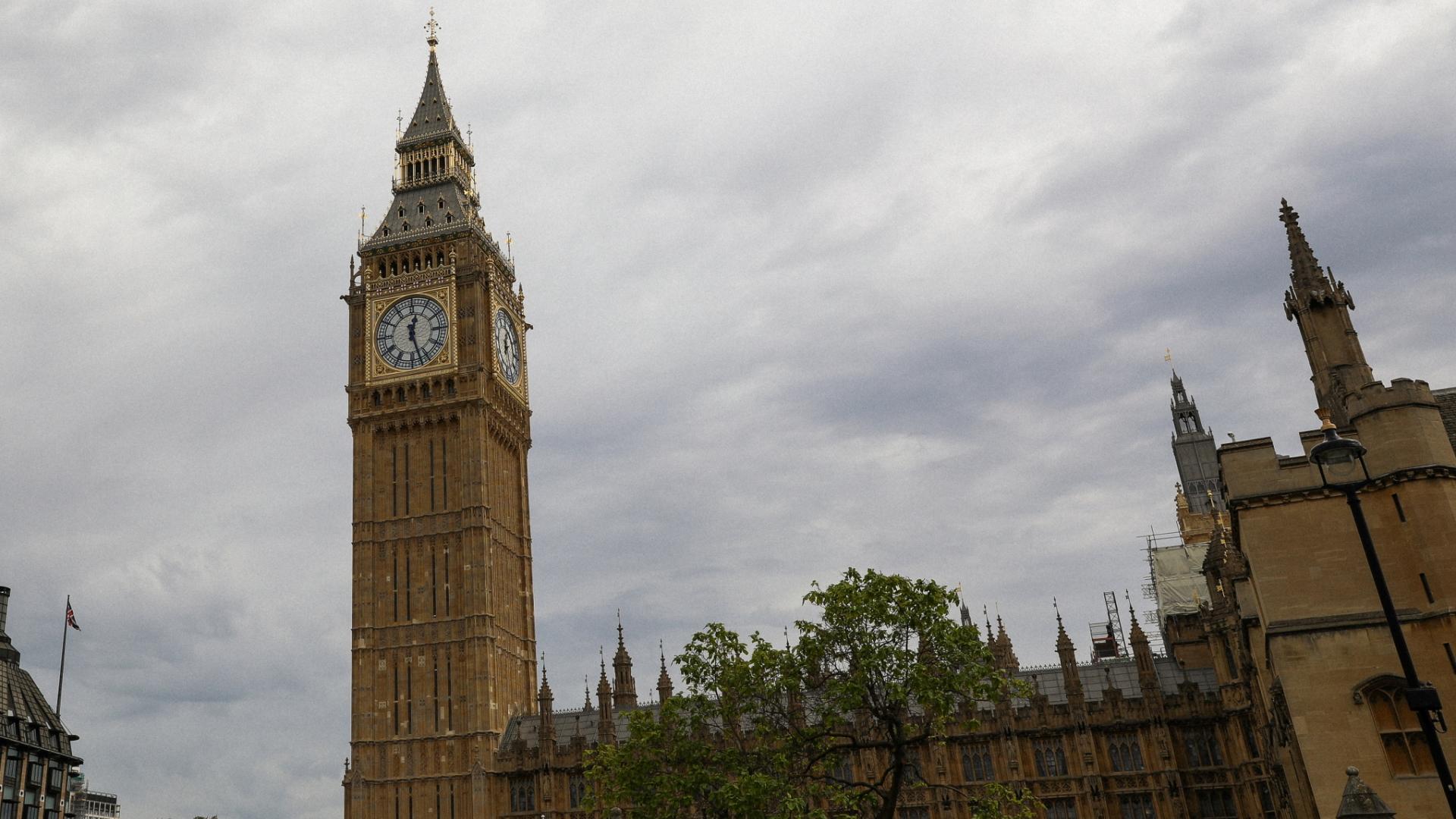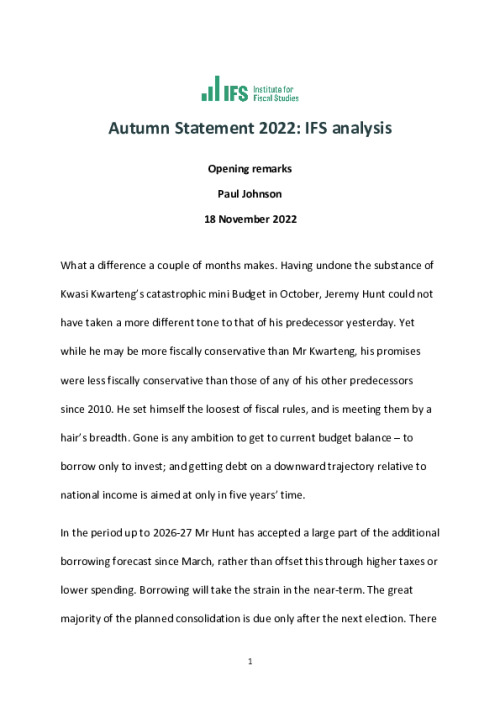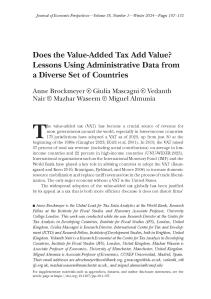
IFS analysis of the Chancellor's announcements on the public finances, spending on public services, and the tax and benefit system.
Downloads

Download Paul Johnson's opening remarks
PDF | 139.99 KB
The new Chancellor Jeremy Hunt made his first major fiscal statement, the Autumn Statement, on Thursday 17th November. This comes against a backdrop of a gloomy - but uncertain - outlook for the economy as rising inflation squeezes household incomes despite substantial government support for energy bills, and much media coverage of possible future spending cuts and tax rises in an attempt to return public sector net debt to a falling path.
IFS researchers presented their initial analysis of the Chancellor's announcements on the public finances, spending on public services, and the tax and the benefit system the following day, Friday 18th November, at an online webinar.
Authors

Director
Paul has been the Director of the IFS since 2011. He is also currently visiting professor in the Department of Economics at University College London.

Senior Economist
Stuart is a Senior Economist working in the Tax sector, and focuses on analysing the design of the tax and benefit system.

Deputy Director
Carl, a Deputy Director, is an editor of the IFS Green Budget, is expert on the UK pension system and sits on the Social Security Advisory Committee.

Senior Research Economist
Ben is a Senior Research Economist and an editor of the IFS Green Budget. His work focuses on the health and social care system and UK fiscal policy.

Senior Research Economist
Xiaowei joined the IFS in 2018 and works in the Income, Work and Welfare sector.
Presentation details
- Publisher
- Institute for Fiscal Studies
Suggested citation
Adam, S et al. (2022). 'Autumn Statement 2022: IFS analysis' [Presentation]. London: Institute for Fiscal Studies. Available at: https://ifs.org.uk/publications/autumn-statement-2022-ifs-analysis (accessed: 24 April 2024).
Related documents
Download Xiaowei Xu's slides
PDF | 303.26 KB
Download Stuart Adam's slides
PDF | 229.04 KB
Download Ben Zaranko's slides
PDF | 194.03 KB
Download Carl Emmerson's slides
PDF | 197.77 KB
More from IFS
Understand this issue

Should we worry about government debt?
11 April 2024

Spring Budget 2024: What you need to know
7 March 2024

Raising revenue from closing inheritance tax loopholes
18 April 2024
Policy analysis

Recent trends in and the outlook for health-related benefits
19 April 2024

4.2 million working-age people now claiming health-related benefits, could rise by 30% by the end of the decade
19 April 2024

Oil and gas make Scotland’s underlying public finances particularly volatile and uncertain
27 March 2024
Academic research

6th World Bank/IFS/ODI Public Finance Conference | Driving Progress: Public Finance and Structural Transformation

Unfunded mandates and taxation
14 March 2024

Does the value-added tax add value? Lessons using administrative data from a diverse set of countries
9 February 2024